In celebration of NAIDOC Week we are featuring Ngaanyatjarra Pitjantjatjara Yankunytjatjara (NPY) Women's Council, an organisation we have been working alongside to create resources to support the mental health and wellbeing of Anangu in remote communities.
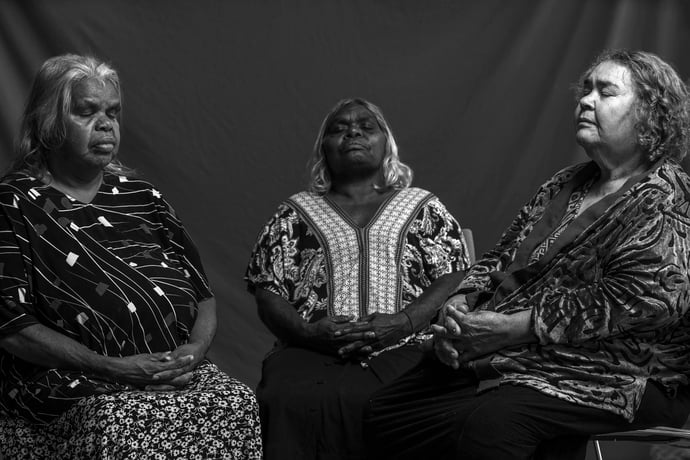
What is the Ngaanyatjarra Pitjantjatjara Yankunytjatjara (NPY) Women's Council and what is your mission?
We are Aboriginal (Anangu) women caring for our communities and their wellbeing. We stand strongly in women’s Law and culture. From here, we work to find the best ways to deliver health, social and cultural programs to our families across the NPY lands in Central Australia.
In 1980 we saw those important conversations on land rights, Aboriginal policy and cultural affairs were mostly happening between men. We had a very special women’s country and culture to protect and we decided to form our own Women’s Council to speak about this.
In 1993 we began to provide services, seeing the strength of supporting women and children for the benefit of the whole community. We are now one of the biggest providers of human services in Central Australia. We are governed and directed by Anangu women across 26 desert communities in the cross-border regions of Western Australia, South Australia and the Northern Territory – an area covering 350,000 sq km.
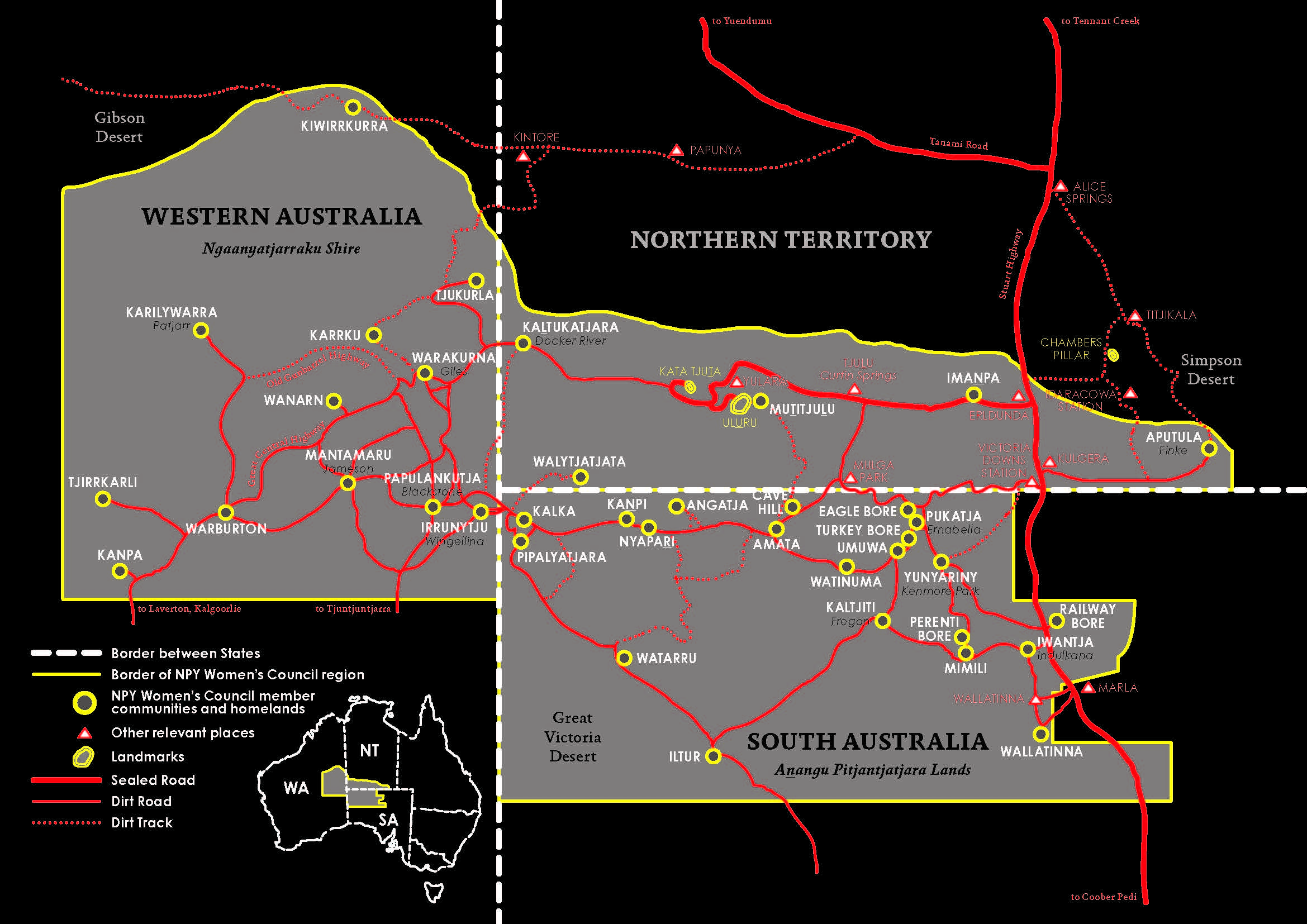
Can you tell us about some of the projects NPY Women’s Council is working on?
NPY Women’s Council provides services that address inequalities in health, economic prosperity and wellbeing of Anangu in remote communities. These include:
- Youth Services
- Child & Family Wellbeing Service
- Tjungu Aged & Disability Service
- Domestic & Family Violence Service
- Tjanpi Desert Weavers Social Enterprise
- Ngangkari Traditional Healers
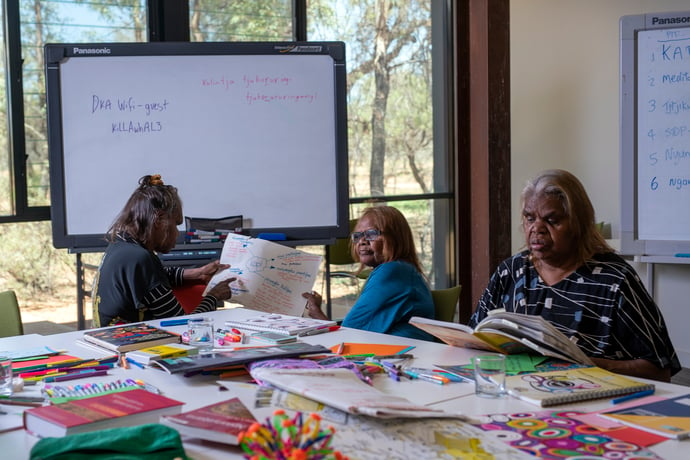
Can you tell us about the Uti Kulintjaku project and what Smiling Mind’s involvement is?
Uti Kulintjaku means to listen, think and understand clearly. Uti Kulintjaku is an initiative of our Ngangkari Traditional Healers Program. Ngangkari traditional healers have looked after the emotional and physical health of people in the NPY lands for thousands of years.
The Uti Kulintjaku project encourages conversations about mental health and looks at ways to improve wellbeing in remote NPY communities.
"Uti Kulintjaku is a new way, using the old way, and bringing it into the new world." Rene Kulitja
Why is NPY Women’s Council working with Smiling Mind?
We love Smiling Mind! They are great collaborators and understand why it’s important to develop authentic language and culture-based meditations, so our people can benefit from meditation. The Smiling Mind app will help us share our meditations easily with our families across the NPY lands. It is a new tool for Anangu people to use to feel calm, uplifted and cope with hard and traumatic situations.
"Smiling Mind also gives the chance for other people across Australia and the world to connect with us, our culture and our language through our meditations."
Can you tell us about the significance of the meditations in language and the connection to culture?
Our Smiling Mind meditations are the first-ever meditations in an Aboriginal language! It is vital the meditations were in our language because they speak to our spirit. Our language is a part of our culture. It is how we express our feelings and how we understand and think about things. In Pitjantjatjara and Ngaanyatjarra we have described our country and our world, the way we see and feel it, and what soothes and comforts us. The voices we recorded are well known to us all, they are our senior people, ngangkari and leaders.
We also hope other people will enjoy listening to our meditations and will travel the soothing journey within them, seeing and feeling our world through our eyes.
“I think a lot about the two worlds that we live in now – the non-Anangu world, whitefella world, the mainstream world, and the Anangu cultural world. I think about how to work within both worlds, how to bring them together so we’re supporting each other with strong knowledge about both worlds. And I think about how to pass on my experience and knowledge to my children so that they stand strong in their culture, stand strong in the two worlds.” Rene Kulitja
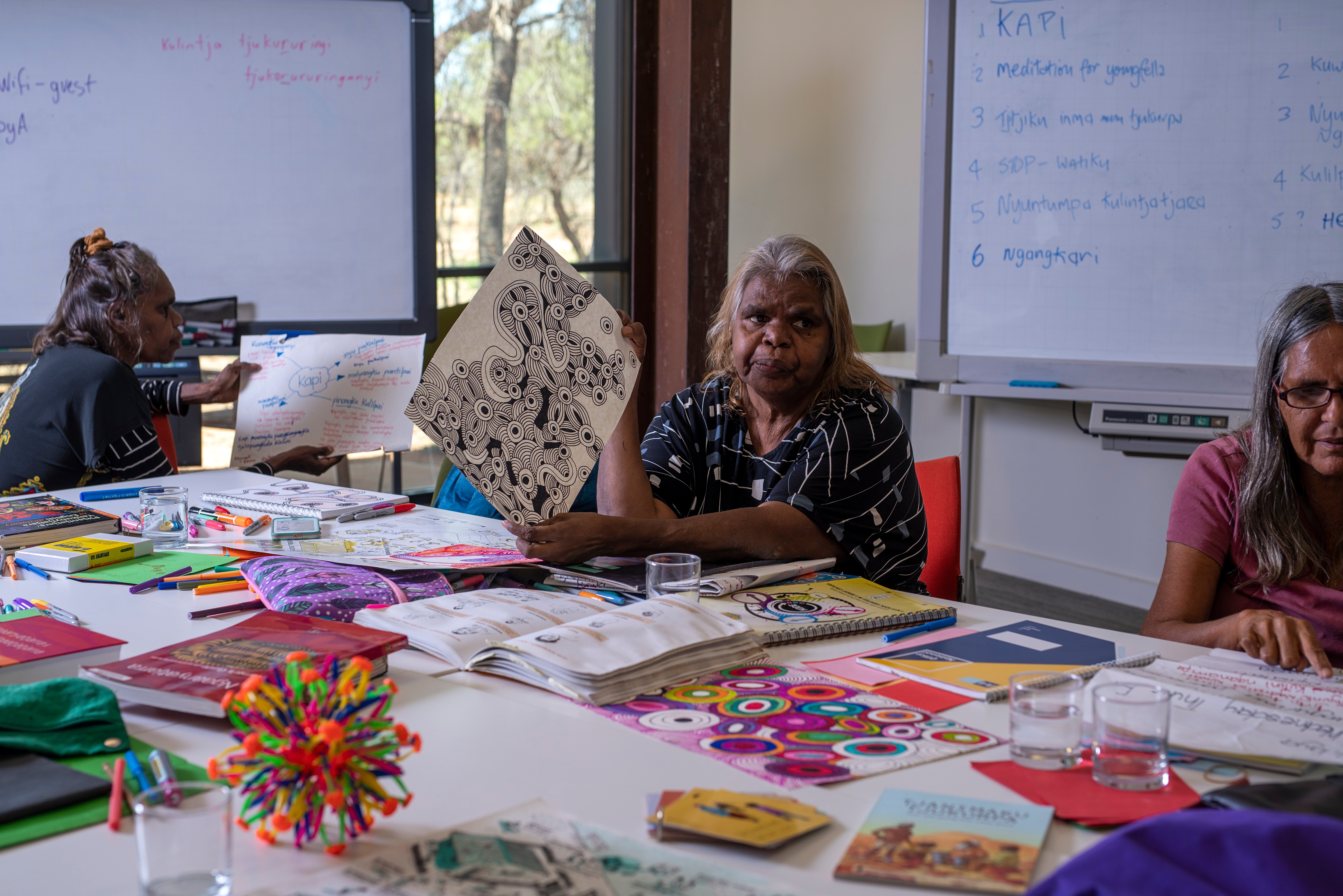
What was the process involved in creating these resources?
In a series of workshops, we gathered and talked about mindfulness, practised meditation and thought about the elements that make up a meditation. We wrote lists of emotional language that settles and calms us. We thought hard about the needs of children and young people, especially those who have experienced trauma. With the help of a Smiling Mind psychologist, we created exercises and videos especially to help them settle down and enjoy meditation.
We shared ideas about journeys we could travel on during our mediations. We thought about adding cultural songs, bird calls, dingo howls and the sound of wind. We worked with a sound engineer to identify exactly the right bird calls and sounds of country, and to record our songs and voices. We checked and double-checked to make sure everyone was happy with what we have made.
The 2021 NAIDOC Week Theme is Heal Country! How do these meditations recognise, protect, and maintain culture?
“We were born on this land, we birthed on this land, our blood and the blood of our mothers and grandmothers is in this land. We are in this land and the land is in us. …” Mantatjara Wilson
Our country and our culture are one. Protecting and maintaining culture is protecting and healing the country, and protecting and healing people.
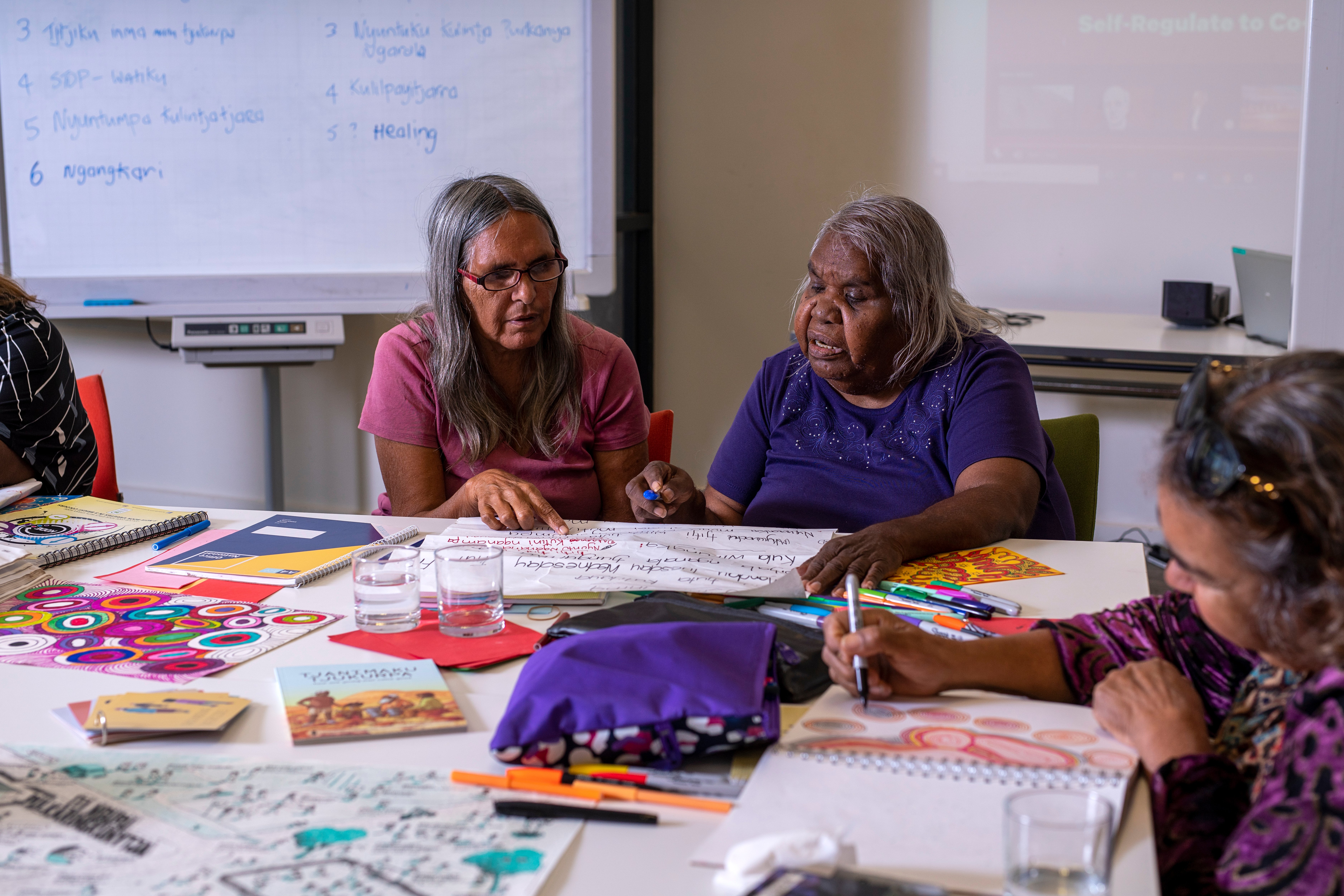
You can learn more about The NPY Women's Council here. Enjoy a visual meditation we have created with the Uti Kulintjaku group here.
This project was supported by Envato.

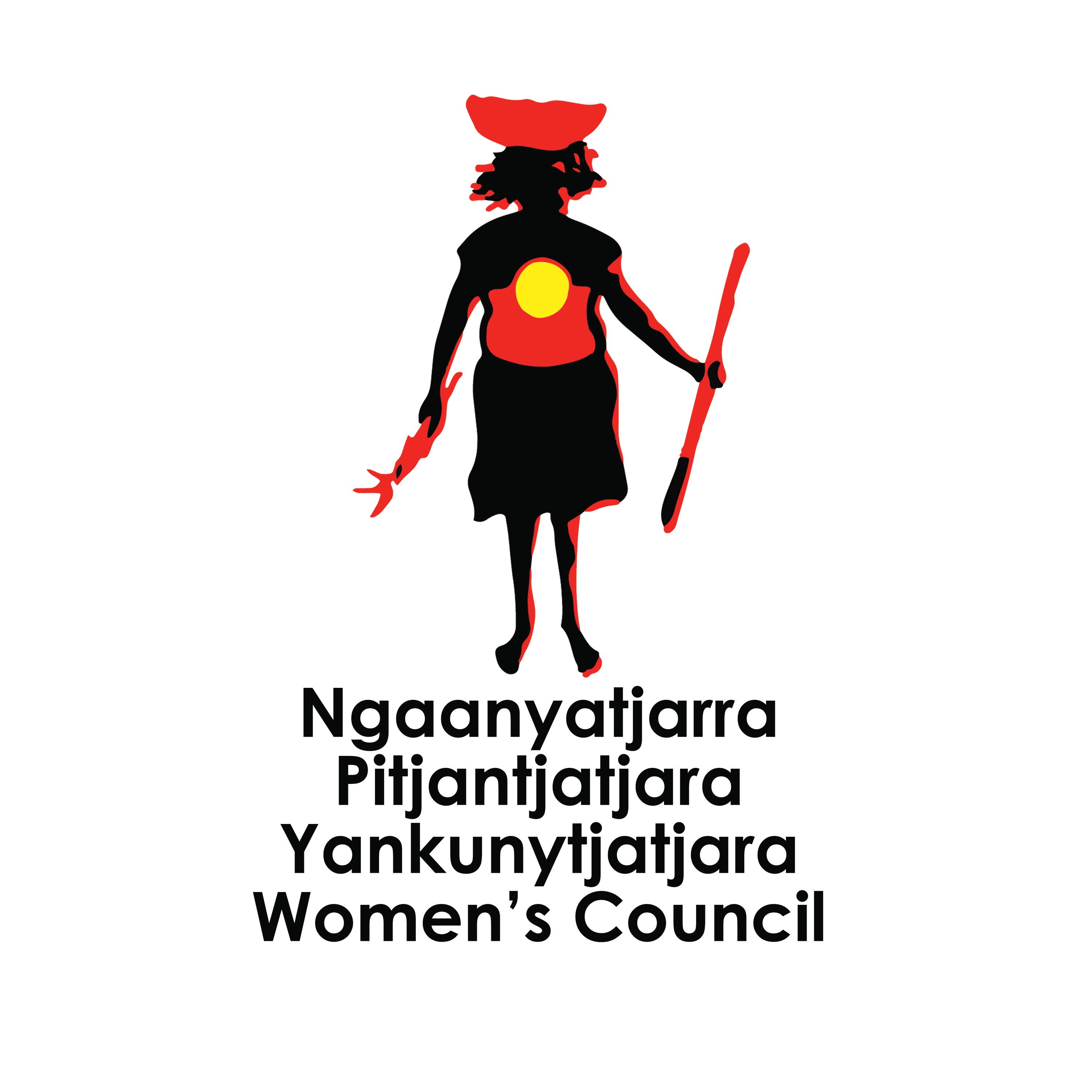
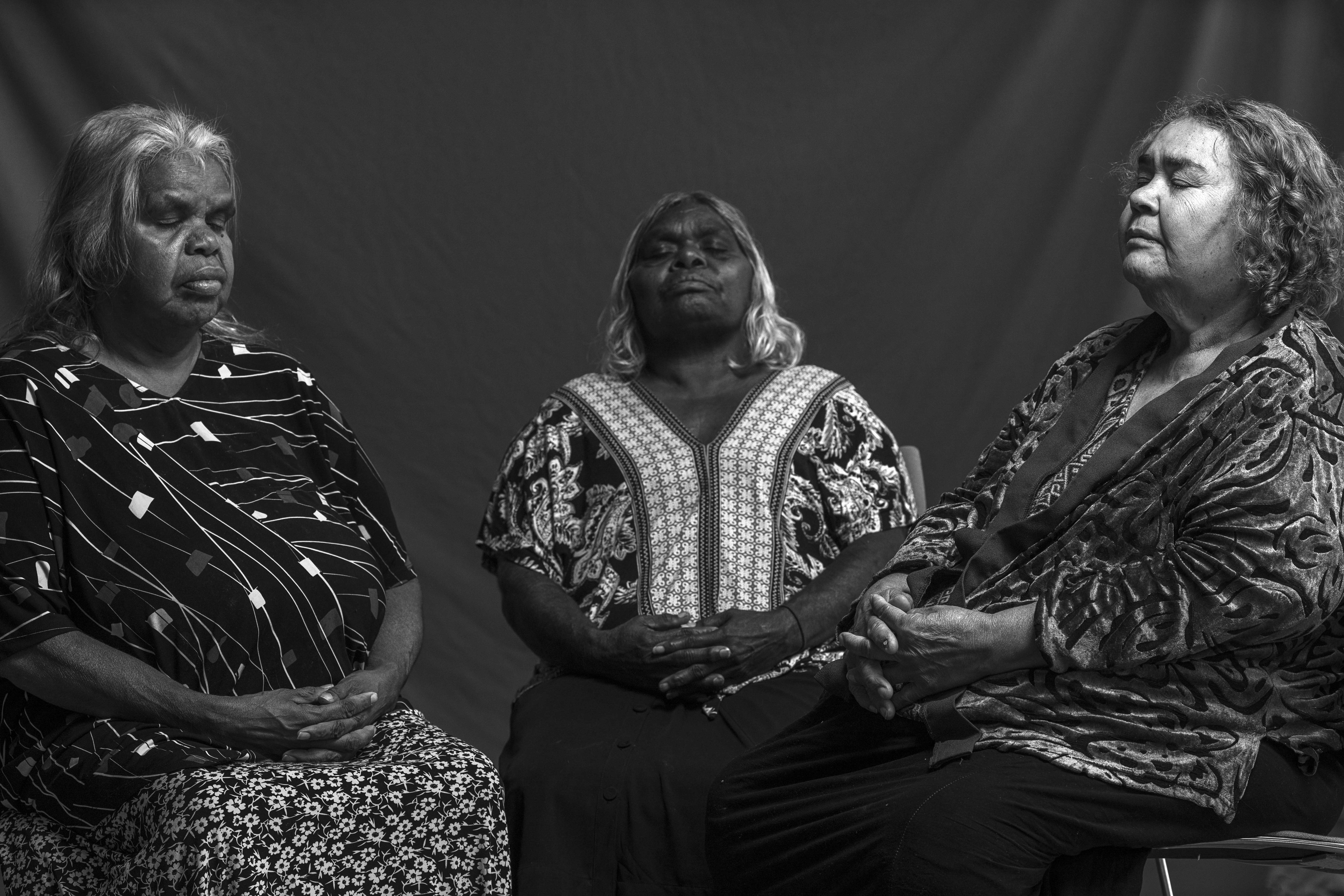
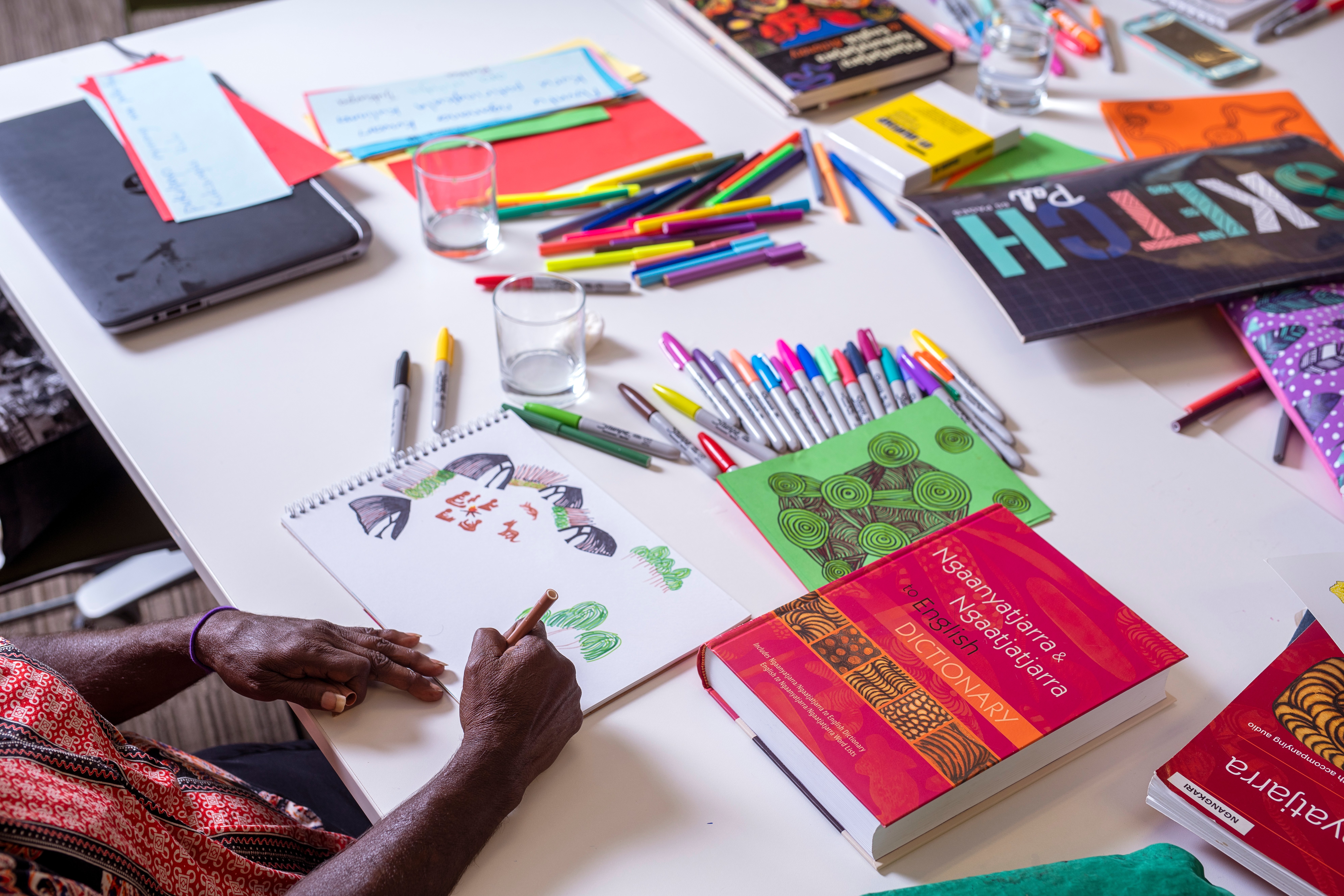

.jpg)








.jpg)




